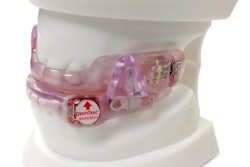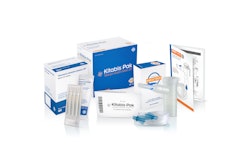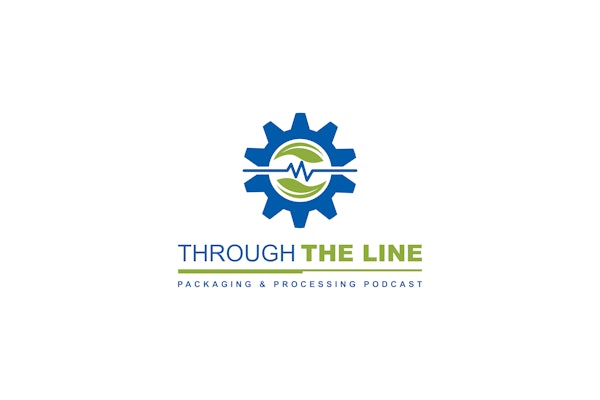The U.S. FDA’s “Drug Master Files: Guidelines” defines DMF as “a submission to the Food and Drug Administration (FDA) that may be used to provide confidential detailed information about facilities, processes, or articles used in the manufacturing, processing, packaging, and storing of one or more human drugs.
“The submission of a DMF is not required by law or FDA regulation. A DMF is submitted solely at the discretion of the holder. The information contained in the DMF may be used to support an Investigational New Drug Application (IND), a New Drug Application (NDA), an Abbreviated New Drug Application (ANDA), another DMF, an Export Application, or amendments and supplements to any of these. A DMF is NOT a substitute for an IND, NDA, ANDA, or Export Application. It is not approved or disapproved. Technical contents of a DMF are reviewed only in connection with the review of an IND, NDA, ANDA, or an Export Application.”
The agency describes DMF procedures here.
In the following article, Plastics Color Corp., a provider of color concentrates, functional additives, and custom polymer masterbatches for the plastics industry, describes the medical and pharmaceutical benefits of DMFs.
Manufacturers that use custom polymer solutions, compounds, colorants, and plastic additive masterbatches in the medical or pharmaceutical markets may benefit greatly by using a DMF. DMFs are important because they contain information on the chemistry, manufacturing, and specifications of several packaging components used for certain medical products.
Maintaining a DMF is critically imperative in both medical and pharmaceutical markets. Some drugs can react with certain polymers within plastic packaging or plastics applications in a way that produces a negative effect on the drug. Understanding the regulatory requirements and end use is essential to successfully formulating a concentrate or additive package that meets all requirements. Since this formulation process is so important, once a polymer concentrate or additive package is approved, communicating that information with those submitting to the FDA is crucial through the aid of a DMF.
The primary benefits of a DMF for plastic use include legal protection for all entities involved, confidentiality of specific formulations, documented accuracy of chemistries, and communication of different parties involved.
DMF basics
A DMF is a confidential, detailed document submitted by Active Pharmaceutical Ingredient (API) manufacturers to the FDA. It houses the information the FDA will need when the end user/brand owner is applying for FDA approval of their end product. There are applications where the plastics portion of the container needs to be FDA-approved and then there are applications where only the end application needs approval. In either case, the DMF contains the information the FDA will need when the end user/brand owner is vying for approval.
Although there is no specific requirement to file a DMF, the benefit of use is overwhelming. The document provides the regulatory authorities with confidential, detailed information about facilities, processes, or articles used in the manufacturing, processing, packaging, and storing of one or more components.
Five types of DMFs are issued by the FDA and are primarily for, but not limited to, the pharmaceutical industry. The users of plastic packaging materials such as bottles and caps, fall under Type III because of information required in FDA, such as an NDA (New Drug Application).
The main objective of a DMF is to support regulatory requirements and to prove the quality, safety, and efficacy of a product for obtaining a needed rating. These include an Investigational New Drug Application (IND), a NDA, an Abbreviated New Drug Application (ANDA), another DMF, or an Export Application. API manufacturers with a large number of DMFs are often considered more reliable in terms of quality, regulatory standing, and ability to meet CGMP (Current Good Manufacturer Process) requirements.
Why a DMF is so important
A DMF aids medical device and pharmaceutical packaging companies when applying for FDA approval. “By referencing a DMF when brand owners are applying for FDA approval, we are able to ensure legal protection, communication consistency, and mutual protection throughout the approval process,” says Jennifer Presnell, Plastic Color Corp.’s Corporate Quality Systems and Regulatory Affairs Manager. According to Presnell, Plastics Color has a strong and consistent history successfully using DMF in conjunction with brand owners in both the medical device and pharmaceutical packaging markets.
Typically a DMF is prepared when two or more firms in partnership work to develop or manufacture a drug-related product. Companies are not required to disclose information on processing, employees, or detailed company material. A DMF filing allows a firm to protect its intellectual property from its partner and yet comply with regulatory requirements for disclosure of product details. It is not mandatory to have a product listed in a DMF for it to be used in the pharmaceutical industry. However, it does make it easier for plastic suppliers to work with end users and allows them a neutral location to obtain the necessary information for testing to assure compliance to FDA laws and regulations.























